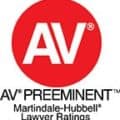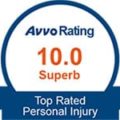I’m a Chicago personal injury lawyer. Most people in my line of work have grown a disdain, a hatred for insurance companies.
They are fed up with the way their deny, delay and defend ways of doing business. Some would go as far to say that insurance companies are immoral, even wicked. They’re not. They’re flawed, deeply flawed. Regardless, they make out like bandits. I know from experience.
I have been a lawyer since 1995. For the first seven years of my career, I represented personal injury victims. I enjoyed representing individuals. Despite the ambulance chaser jokes, I was proud of what I did. However, in 2002, I was offered a great opportunity – a management position with a major Chicago-based insurance company where I would essentially call the shots on cases that had million-dollar-plus exposure. After much internal debate, for personal and professional reasons, I decided to take the job. I believed I could handle claims for the insurance company in a way that did not cheat legitimate victims of negligence out of money. I thought that in a way, I would still be helping people.
Working For The Insurance Company
It was my first day of work at my new job. I was driving to the office thinking that, with my help, this company could run like a well-oiled machine, a machine that treated negligence victims fairly and at the same time, didn’t have to raise insurance premiums for its policy holders. My newly formed unit called C.L.E.M. (Claims Legal Exposure Management) was going to help eliminate the waste that goes on in an insurance company’s claim department. Our motto, as expressed to me by the higher-ups who hired me, was something along the lines of: If cases should be settled, for how much? And why not now? If they should be tried, what do you need from us to be successful at trial? It was an optimistic drive to work.
I arrived at my new office to find an essential office supply missing, a computer.
I figured I would head to the computer department and snag one myself. (Note: If you work or have worked for an insurance company or for corporate America, please hold your laughter. I didn’t know any better). I went to the computer department where I was informed that I would have to submit a requisition. Of course, there was a multitude of people who had to be involved in this process so it would take a couple of weeks if all went according to plan.
I asked my new boss what I could do to be productive without a computer given that my job was practically paperless. I probably could have sat in my office for a couple of weeks and sharpened pencils (yes – this is a reference to Sam Malone from Cheers when he went to work for the corporation). However, I believe in a “good day’s work for a good day’s pay”. He mentioned a trial in Philadelphia that I could go help out with. So I began booking the trip through the company’s travel department. My goal was to rent a room at the Best Western across from the courthouse. However, per company policy, I was not permitted to reserve the $99 room walking distance from my destination. Instead, the insurance company had a list of “approved” hotels I could stay at. The “approved” hotel eventually booked was quite a distance from the courthouse and it cost almost four times as much. Plus, I would have to rent a car to get from the hotel to court each day.
A couple of weeks after I returned from my trip, I had my computer and was ready to get cracking: I was ready to make a difference.
I received a list of cases to oversee. Most of these cases had exposure of many millions of dollars. The first thing I noticed was that these high exposure cases were not being handled by high exposure defense lawyers. In fact, most of them were being handled by quite the opposite. The attitude around the insurance company was “a lawyer is a lawyer.” My hands were tied in this regard. I had to deal with the lawyers originally assigned to these cases. Most of them were assigned by an adjuster who liked the lawyer for purely personal reasons. If I asked, “Why did you hire this lawyer?” the response was sometimes “Because I met him at the annual golf outing and he seemed like a nice guy.” Yikes!
Most of these lawyers defending these high exposure cases didn’t put much of an emphasis on strategy. Virtually none had an early exit settlement plan. Instead, they took countless depositions, filed worthless motions and billed the file as much as they could. As trial approached, they would uniformly request a lot more money than they originally evaluated the case at, in an effort to avoid trial. The insurance company’s adjusters and analysts were of course afraid of the repercussions should a large verdict come in on a case that had their names on it. Therefore, they figured out a way to get enough authority from the higher-ups of the insurance company on the file to avoid possible unemployment. I was there to change this behavior…I think.
The first thing I would do on these large cases was set up a personal meeting between the folks working on the file, usually an adjuster, the adjuster’s supervisor or analyst, and a defense attorney. Trying to get an insurance adjuster out of his cubicle was no easy task, especially given the sheer volume of cases they handle. They can’t afford a couple hours out of their cubes for personal meetings. Most of the adjusters have never even met the attorneys they hired to handle these high-risk cases, other than maybe at the golf outings mentioned above. I made it a point to meet with these adjusters. Maybe I’m old fashioned that way.
One of the first things I noticed when I met with insurance adjusters was the animosity that they held for insurance company management, at the time, me. It was understandable. For one, management would constantly make policy changes that hold back the adjusters from doing their jobs efficiently, and then scold them for being inefficient. “Fill out this form, then that form, and then we’re going to change the forms” was management’s way. Initially, when I showed up at the typical branch insurance claims office, I felt like I was like showing up with a sign that said “I’m from home office. I am here to work against you. I am your enemy. Do not trust that I am here to help you.”
The insurance company was full of people who were meant to work together, yet operated on completely different levels. There was an utter lack of cohesion between the moving parts of the operation. I soon realized that getting all the necessary people on the same page to more efficiently pay out legitimate claims in a timely matter, as well as defend the claims that should be defended, was going to be a Herculean task.
I spent the next year working on developing relationships with the adjusters within the company. This was no easy task. The adjusters don’t have much authority to do anything very substantial and most things need to go up several levels and through tons of red tape before their ideas are considered. Therefore, many of them sit back and let defense lawyers overwork and over-bill cases that should have been concluded long ago. Time usually works in favor of plaintiffs as serious injuries often get worse with time. Essentially insurance adjusters on big cases watch legal bills increase at the same time the value of the case increases. Many of the adjusters feel helpless in this regard and morale suffers.
I also spent a great deal of time with the defense lawyers who handled substantial cases for the insurance company. Knowing that I had the power to give them more work (or possibly take work away), they were eager to wine and dine me. But how do you convince a defense attorney who bills by the hour that he is better off moving cases quickly and efficiently? Why would he want to bring a case to conclusion in one year when he can work on it, and therefore bill on it, for three?
It often occurred to me that the big dogs that run insurance companies probably don’t care much about running the claims department efficiently. Maybe the claims department is too big of a problem and their attention is better off focused elsewhere like how to raise premiums and how to invest the company’s money wiser.
I had hoped to influence the insurance company by helping them realize they might be able to make more money by well, just being better. It occurred to me that maybe being better was not necessarily the goal. Insurance companies understand how effective it is when they, through their extremely well-funded lobbyists, get politicians to preach “tort reform” (though I prefer “tort deform”). The lobbyists tell tales (and that’s what they are – tales) of “lawsuit abuse.” Joe Q. Public is essentially brainwashed into thinking that people (and their lawyers) who file claims are responsible for their high insurance premiums, for the high cost of health care, for chasing doctors out of their states… When things are going wrong for an insurance company, they ordinarily don’t need to become better. They just need to raise premiums, influence the public with falsities and continue to make billions of dollars. What a business!
After putting in my time at the insurance company, I happily returned to my post as a Chicago personal injury lawyer where I will remain. I had gained some inside knowledge on how the other side operates. It’s not pretty but who am I to criticize? For all of an insurance company’s flaws, they sure know how to make money.











